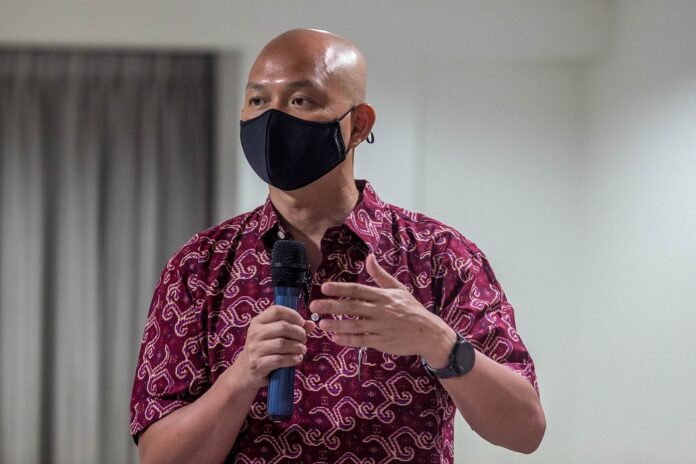DAP’s Ong Kian Ming said vaccine recognition should not be the main concern and the focus should instead be on achieving immunised status for the whole country. Picture by Firdaus Latif
KUALA LUMPUR, July 7 — Bangi DAP MP Ong Kian Ming today said Malaysia should focus on increasing its vaccination rate domestically, as part of a larger strategy in containing Covid-19 and to ensure the nation is not put on the ‘banned list’ of any country.
He said vaccine recognition should not be the main concern and the focus should instead be on achieving immunised status for the whole country.
The former international trade and industry deputy minister as an example said the travel policy with regards to Malaysians travelling to the European Union (EU) countries is still governed by the rules and policies of individual countries.
“For most EU countries, the indicators which are of concern are the number and variant of Covid-19 cases, and the rate of spread in the country from which an individual is traveling from,” he said in a statement this morning.
Ong cited Germany in this instance, which he said uses publicly-published indicators which categorised countries into Areas of Variant of Concern which is effectively a travel ban list, High Incidence Areas of which Malaysia first entered on June 14, and Base Risk Areas.
“For the United Kingdom, which is no longer in the European Union, and is probably the most visited European country by Malaysians, the main challenge for us is to ensure that our country doesn’t fall into the list of Red countries and territories which means that Malaysians cannot travel to the UK regardless of vaccination status.
“We are currently in the Amber list which means that we have to take a Covid-19 test before travelling to the UK, quarantine in a hotel or at home for 10 days and pay for tests on Day Two and Day Eight of the quarantine,” he said.
Ong admitted that he was initially taken aback when he first read of news reports that the European Medicines Agency (EMA) does not recognise the Astra-Zeneca (AZ) vaccines that were recently donated to Malaysia by Japan.
“Upon further study, I realised that this was a gross overreaction and that I had failed to educate myself on this issue, as the EMA is not supposed to recognise any vaccines that are produced outside the EU which are not meant for the EU market.
“Most of the supplies of the AZ vaccine which are being used in the EU are manufactured in Belgium as well as in the United States. Like any pharmaceutical regulator, the EMA would only be concerned about the manufacturing process at the facilities where the vaccines are being made,” he said.
Despite the lack of EMA recognition for AZ vaccines from production facilities outside the EU, Ong said this did not mean these vaccines are somehow less safe.
“For example, the National Pharmaceutical Regulatory Agency in Malaysia has not yet recognised the Covid-19 vaccine currently being produced by Moderna, but this vaccine is already being widely used in many countries including in Singapore.
“As far as I know, the EMA non-recognition is not a restriction for Malaysians who have taken the AZ vaccine to travel to Europe. The EMA is a government agency just like the NPRA with a specific mandate and set of responsibilities, and does not decide the rules with regards to international travel to and from EU countries,” he said.


